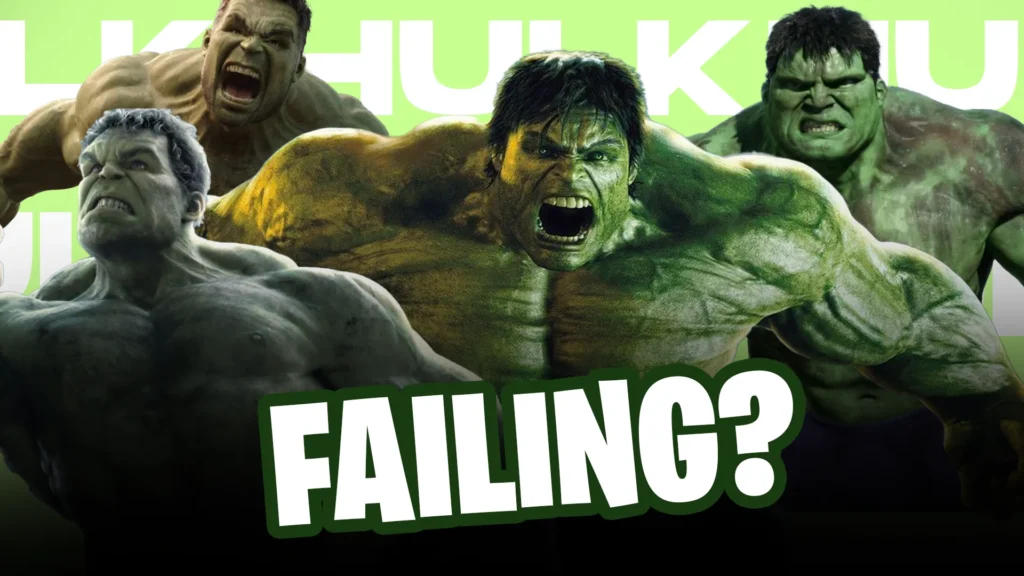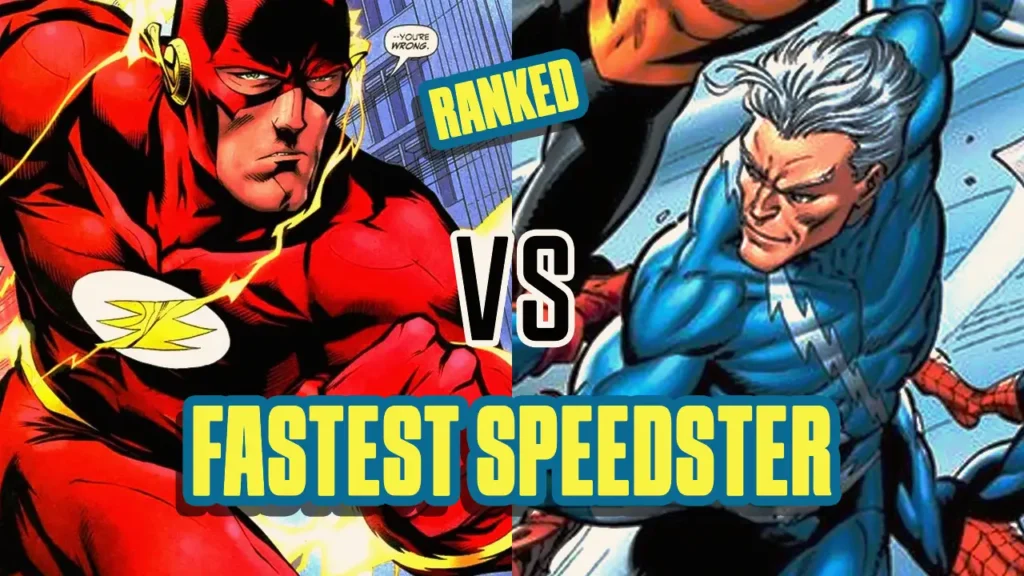Why Do Hulk Movies Fall Short of Expectations?
He’s big, he’s green, and you probably wouldn’t like him very much when he gets angry. As you likely know, the long-time beloved Marvel Comics character, the Hulk, has had a slightly less than successful run at the box office. However, since being fully incorporated into the Marvel Cinematic Universe, the character has risen to a near all-time high of popularity.
So why hasn’t he gotten a new solo big screen adventure?
Table of Contents
ToggleHistory
Created by Jack Kirby and Stan Lee in May of 1962, the Hulk made his live-action small screen debut in 1978, starring Bill Bixby and Lou Ferrigno. The show, which would be a trailblazer in terms of getting mainstream American culture to take superhero TV projects seriously, would only last five years. After being cancelled, it spawned three made-for-TV movies, the last of which would be titled The Death of the Incredible Hulk and be released in 1990.
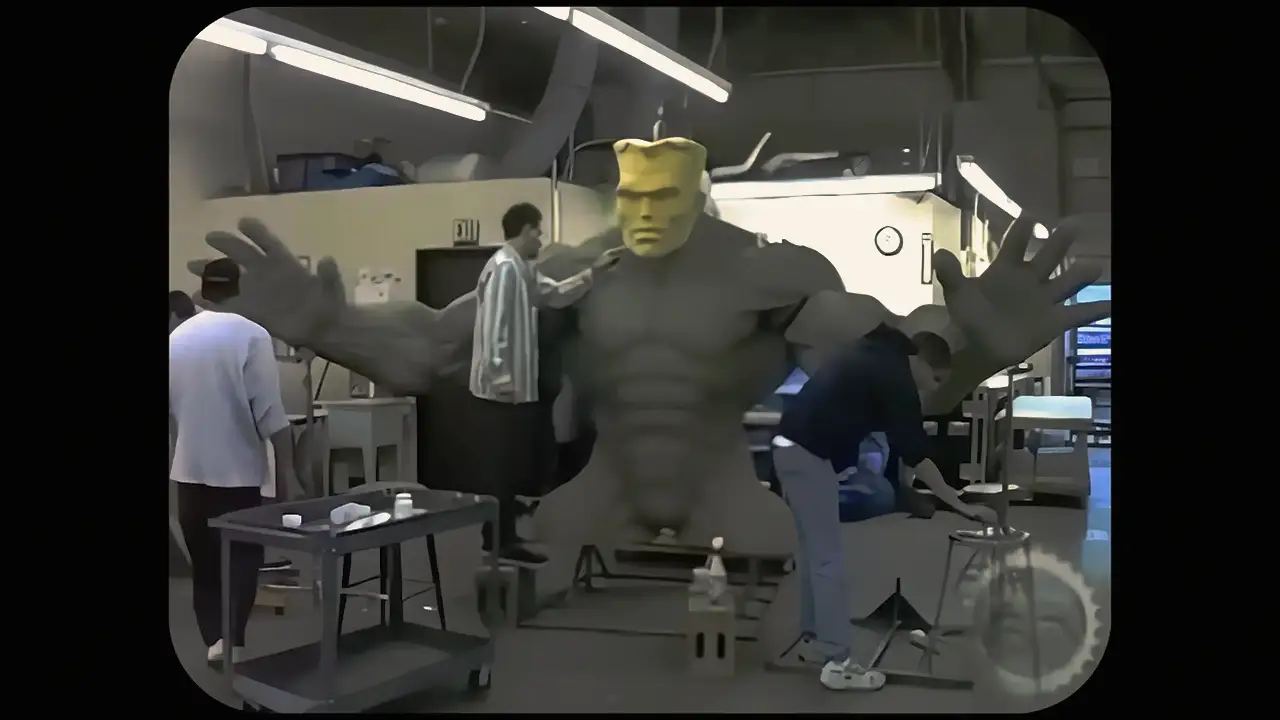 After that, the prospect of a live-action big screen adaptation was raised multiple times, with filmmakers getting very close. Billy Crudup was even cast as the good Dr. Banner for an almost-produced theatrical version in 1998. Ultimately, despite large amounts of pre-production work being done, this version was deemed too expensive by Universal, and the project was put to rest. And therein lies the cross that our favorite big green meanie will have to carry for the duration of his time in Tinseltown: fisocal viability.
After that, the prospect of a live-action big screen adaptation was raised multiple times, with filmmakers getting very close. Billy Crudup was even cast as the good Dr. Banner for an almost-produced theatrical version in 1998. Ultimately, despite large amounts of pre-production work being done, this version was deemed too expensive by Universal, and the project was put to rest. And therein lies the cross that our favorite big green meanie will have to carry for the duration of his time in Tinseltown: fisocal viability. 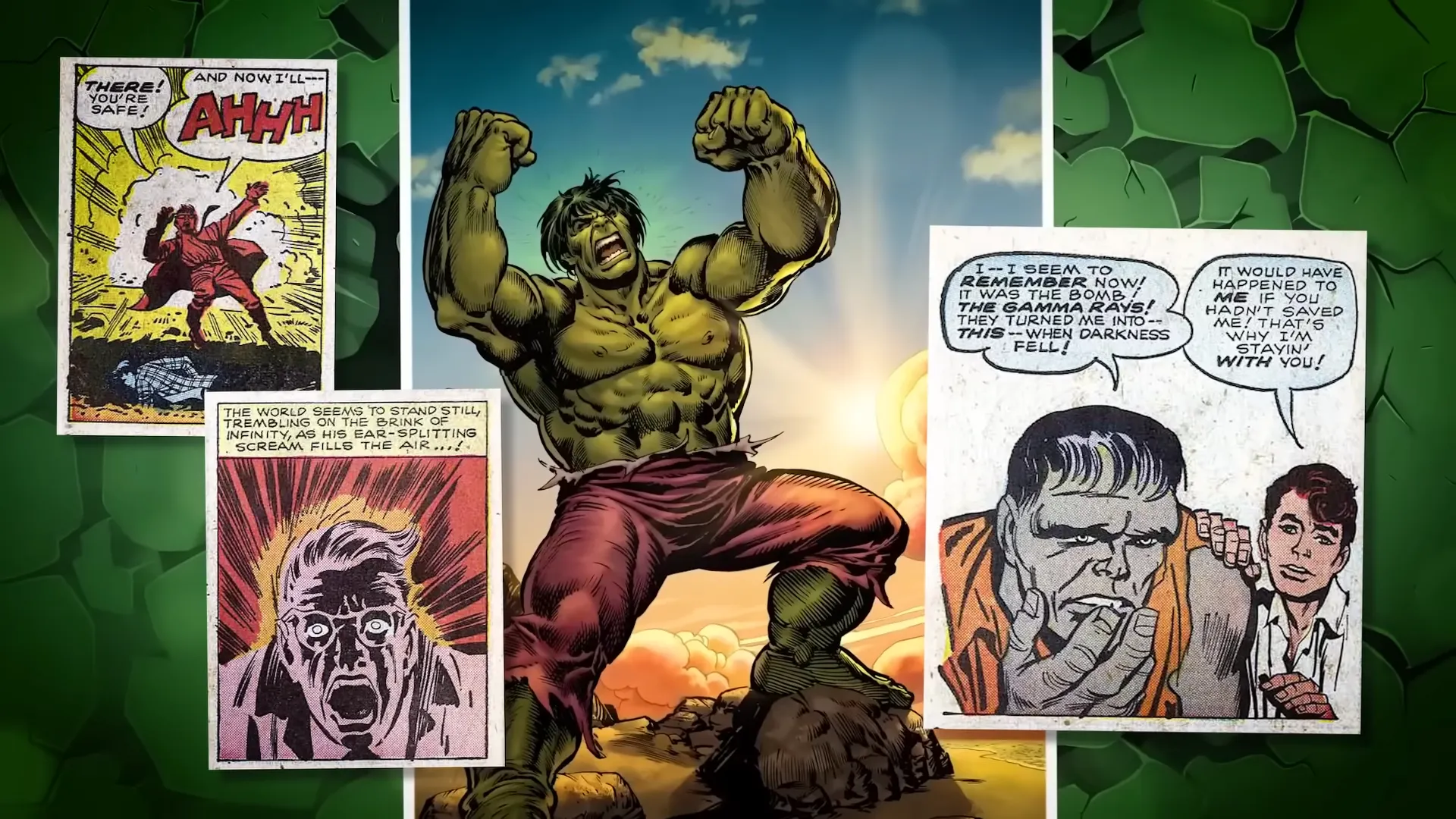 Almost every version of the Hulk has had to navigate the money issue in one way or another.
Almost every version of the Hulk has had to navigate the money issue in one way or another.
The core concept of a man irradiated by gamma rays who transforms into a big green beast when he becomes angry is just a massively expensive prospect. And yet, in 2003, during the initial boom of superhero projects, Hulk made it to cinemas.
Hulk 2003
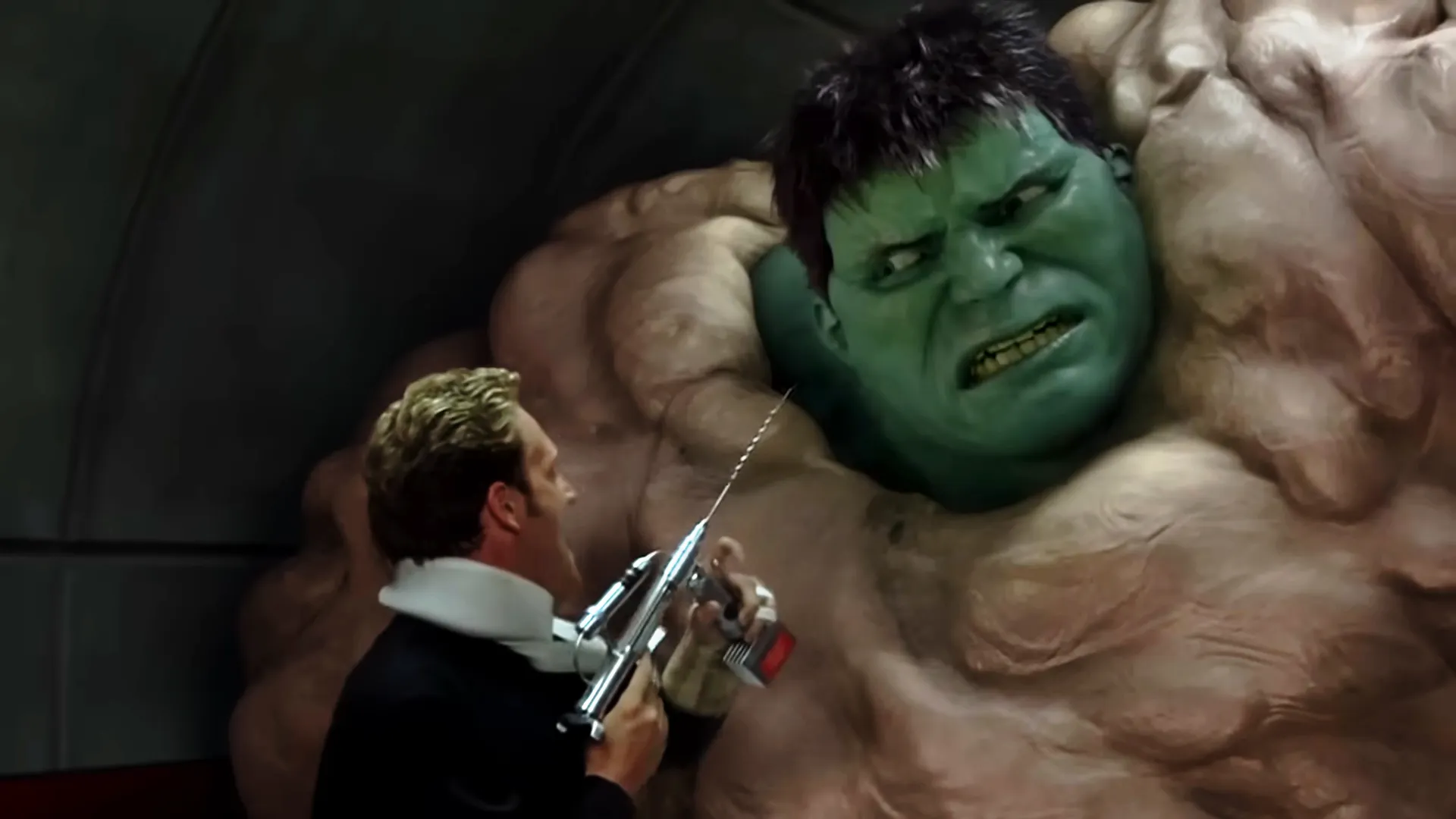 The film, produced at Universal and directed by Ang Lee, was a disappointment, only pulling in $245 million off of a budget of $140 million. Universal had high hopes for the film, predicting it would jumpstart a franchise to compete with Fox’s X-Men and Sony’s Spider-Man. But that didn’t happen. Frankly, you can just feel that Ang Lee wasn’t a fan of the material. From the Brady Bunch cinematography to the weird decision to make Absorbing Man Bruce’s father, to the fact that the anatomy of the Hulk just looks weirdly puffy and rounded, everything about this movie just feels slightly off. It’s understandable why it didn’t exactly set the world on fire.
The film, produced at Universal and directed by Ang Lee, was a disappointment, only pulling in $245 million off of a budget of $140 million. Universal had high hopes for the film, predicting it would jumpstart a franchise to compete with Fox’s X-Men and Sony’s Spider-Man. But that didn’t happen. Frankly, you can just feel that Ang Lee wasn’t a fan of the material. From the Brady Bunch cinematography to the weird decision to make Absorbing Man Bruce’s father, to the fact that the anatomy of the Hulk just looks weirdly puffy and rounded, everything about this movie just feels slightly off. It’s understandable why it didn’t exactly set the world on fire.
Marvel Studios
Flash forward five years and Marvel Comics decided to get into the movie business with a newly formed production company named Marvel Studios. However, they didn’t have the rights to most of their flagship characters, having sold off the rights in order to stay solvent during a brief detour into bankruptcy in the late 1990s. They managed to wrangle Iron Man back from Paramount, and they approached Universal to work with them on a rebooted version of the Hulk. Against all odds, Iron Man, which was released on May 2nd, 2008, was a massive success. So, hopes were high that Marvel could do the impossible and re-cement the Hulk as an A-list superhero.
The Incredible Hulk
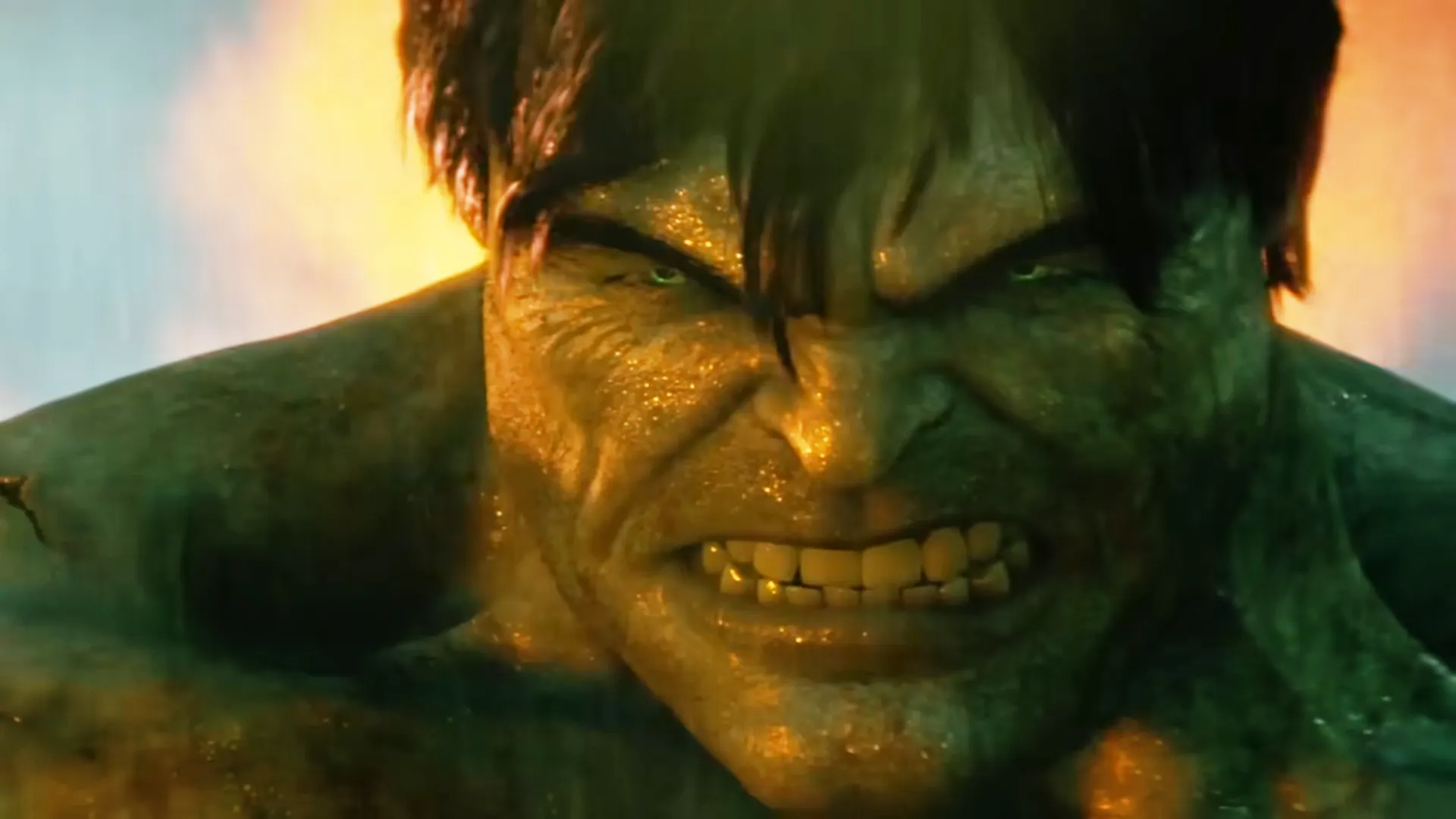 The behind-the-scenes of the rebooted Incredible Hulk were a bit choppy, though. There were differing opinions on what creative direction to take the new installment in due to the fact that the previous film was not an abject failure, but also objectively did not succeed. The course of action that was ultimately decided on, as producer Gale Ann Hurd described it, is kind of a reboot, and it’s kind of a sequel. Director Louis Leterrier was hired to bring his visual flair to the project, and the script, written by Zach Penn, was quickly begun. And here’s where things get interesting. In order to woo Edward Norton onto the project, Marvel promised him roles as both the star and writer. He was promised to be allowed to rewrite the entire script. With the stipulation that it had to be completed within one month, as time was running out. Needless to say, Norton did rewrite the film, with some reports even saying he was rewriting the script all throughout production.
The behind-the-scenes of the rebooted Incredible Hulk were a bit choppy, though. There were differing opinions on what creative direction to take the new installment in due to the fact that the previous film was not an abject failure, but also objectively did not succeed. The course of action that was ultimately decided on, as producer Gale Ann Hurd described it, is kind of a reboot, and it’s kind of a sequel. Director Louis Leterrier was hired to bring his visual flair to the project, and the script, written by Zach Penn, was quickly begun. And here’s where things get interesting. In order to woo Edward Norton onto the project, Marvel promised him roles as both the star and writer. He was promised to be allowed to rewrite the entire script. With the stipulation that it had to be completed within one month, as time was running out. Needless to say, Norton did rewrite the film, with some reports even saying he was rewriting the script all throughout production.
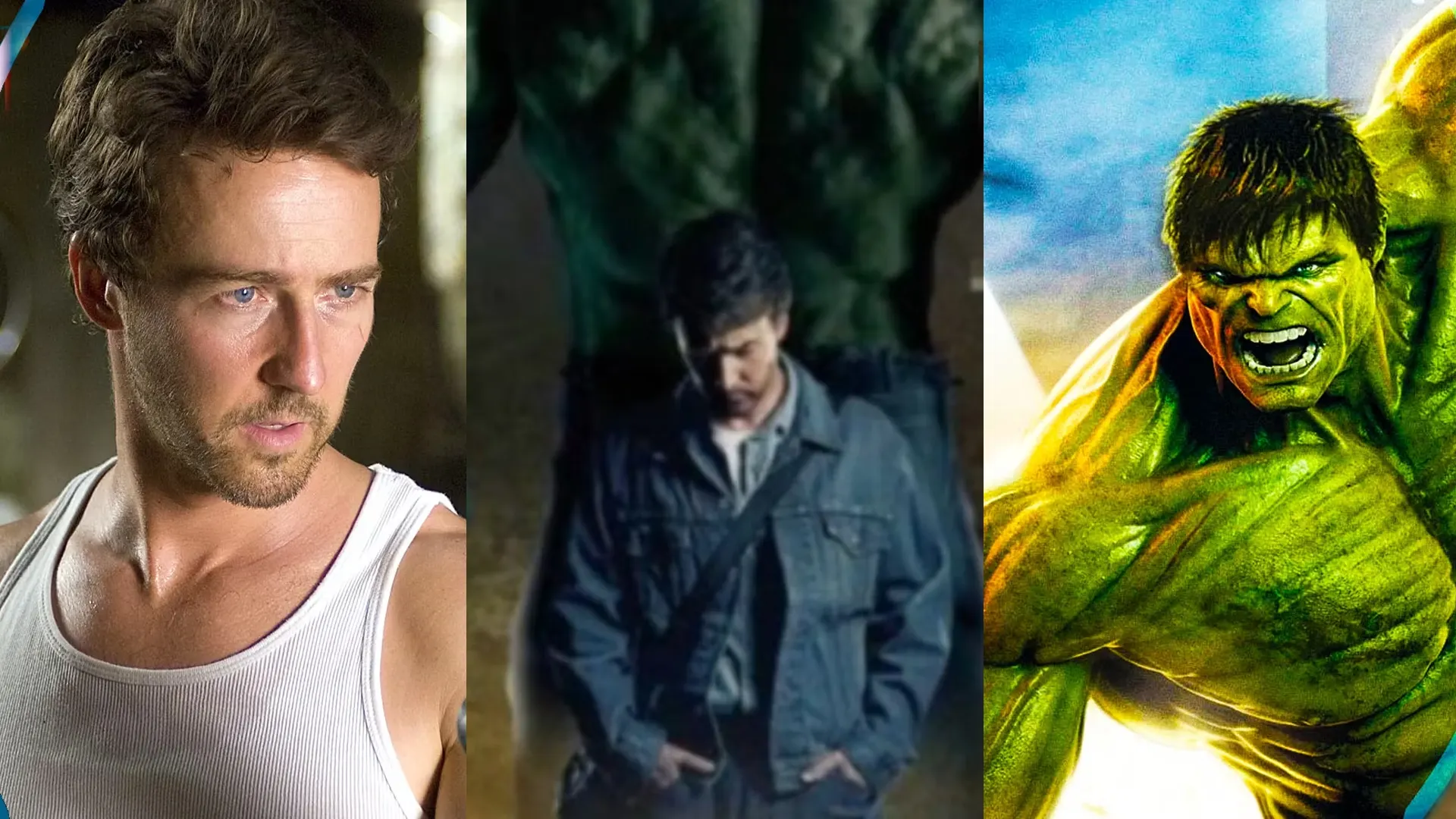 Tragically, the resulting film, produced with Marvel paying for the production budget, but Universal retaining distribution rights, netted $265 million at the box office and cost $150 million to make. And to make things even more complicated, the star of the film and Marvel brass were very obviously not getting along. In 2010, Kevin Feige put out a public statement that said that Norton would not be returning for The Avengers, stating, “our decision is definitely not one based on monetary factors, but instead rooted in the need for an actor who embodies the creativity and collaborative spirit of our other talented cast members.
Tragically, the resulting film, produced with Marvel paying for the production budget, but Universal retaining distribution rights, netted $265 million at the box office and cost $150 million to make. And to make things even more complicated, the star of the film and Marvel brass were very obviously not getting along. In 2010, Kevin Feige put out a public statement that said that Norton would not be returning for The Avengers, stating, “our decision is definitely not one based on monetary factors, but instead rooted in the need for an actor who embodies the creativity and collaborative spirit of our other talented cast members.
Mark Ruffalo
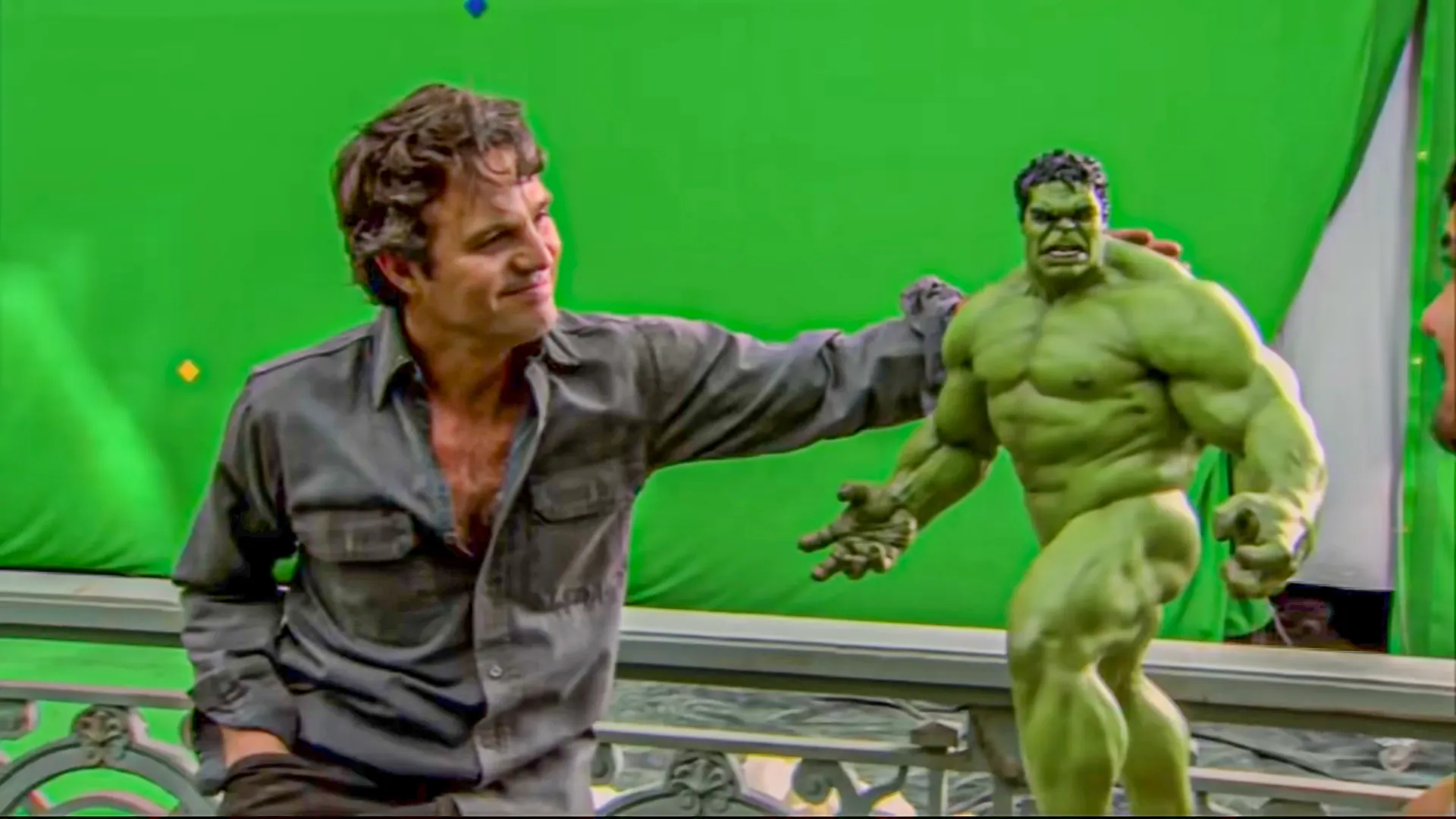 This one-two stumbling block would ensure that the Hulk’s fate seemed less than certain going forward. So much so, in fact, that rumors persisted in the run-up to The Avengers that the Hulk would be the central antagonist of the film.
This one-two stumbling block would ensure that the Hulk’s fate seemed less than certain going forward. So much so, in fact, that rumors persisted in the run-up to The Avengers that the Hulk would be the central antagonist of the film.
Much like he was in The Avengers first appearance in Avengers Number One. You don’t need to recast Banner if he’s just not in the movie. Thankfully, that wouldn’t come to pass with Bruce Banner being recast as Mark Ruffalo. The actor’s brooding, wounded performance was almost instantly heralded as the definitive incarnation of the rampaging beast.
Planet Hulk
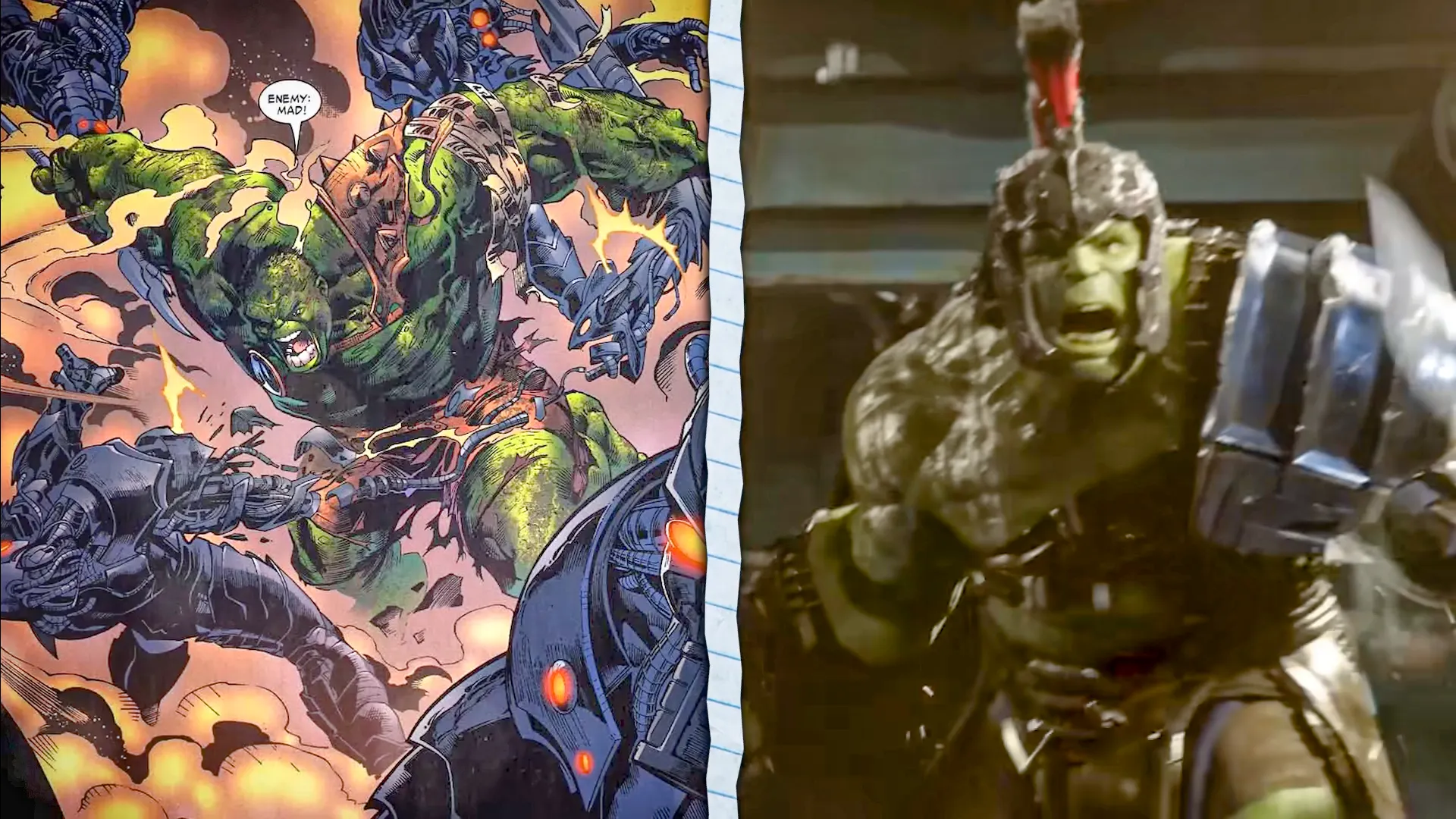 Hulk would appear throughout the MCU in meaty but supporting roles. However, as the character’s popularity and clout rose with every appearance, moviegoers and comic book fans alike were begging Marvel to produce a big-screen version of the Planet Hulk storyline. This storyline saw Hulk marooned on an alien world where he’s forced to compete in gladiatorial games for survival.
Hulk would appear throughout the MCU in meaty but supporting roles. However, as the character’s popularity and clout rose with every appearance, moviegoers and comic book fans alike were begging Marvel to produce a big-screen version of the Planet Hulk storyline. This storyline saw Hulk marooned on an alien world where he’s forced to compete in gladiatorial games for survival.
Planet Hulk was eventually brought into the MCU, but it wasn’t as a solo Hulk movie. Instead, it served as the basis for Thor: Ragnarok. Was the movie great? Yes. Was it a solo Hulk movie? No. The film cribs only the most surface-level elements from the books and positions Hulk as the comedic foil to Thor.
World War Hulk
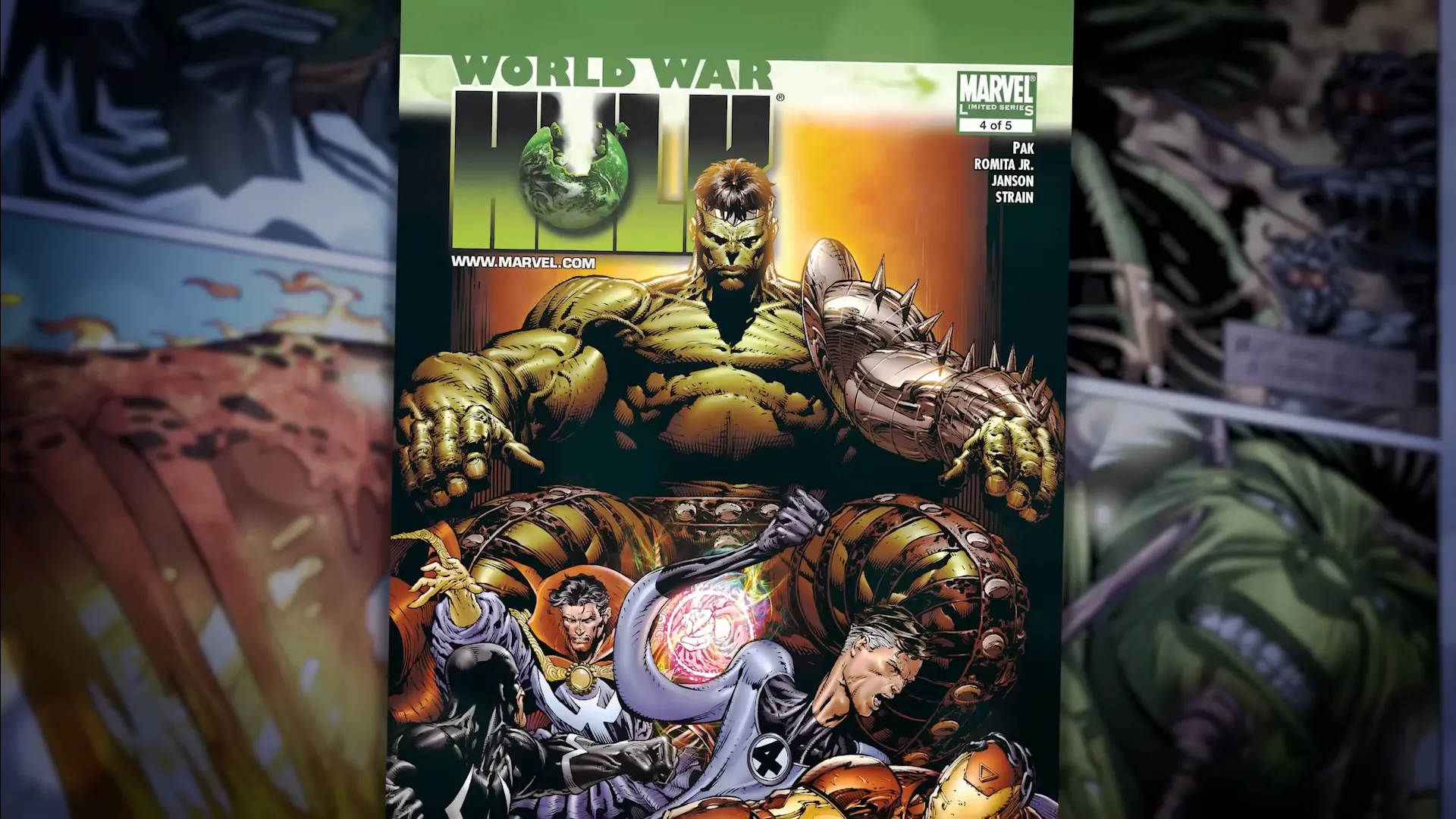 The fans are still clamoring, so will there be another solo Hulk film? The answer to that question is a bit complicated. Rumors have been circulating for some time now, but now with Hulk’s son Skaar being introduced at the end of She-Hulk, it would seem that both World War Hulk and Young Avengers are near inevitabilities.
The fans are still clamoring, so will there be another solo Hulk film? The answer to that question is a bit complicated. Rumors have been circulating for some time now, but now with Hulk’s son Skaar being introduced at the end of She-Hulk, it would seem that both World War Hulk and Young Avengers are near inevitabilities.
Having been tricked and marooned on an alien world by the Illuminati, the original World War Hulk storyline saw Hulk returning to Earth for revenge. This could easily be replicated in the MCU with either the death of his newly introduced son, or another longtime fan-favorite character. Of course, there’s always the question of, does Mark Ruffalo even want to appear in a World War Hulk film?
Verdict
Well, there’s an obvious fan appetite, a star who’s ready, and a studio who’s obviously inching closer and closer to pulling the trigger. Furthermore, some rumors are saying that Universal’s sequel and distribution rights over The Hulk are also in the process of reverting to the House of Ideas.
If it’s true that Universal’s distribution rights have expired, then the odds are looking good for another theatrical outing for Dr. Banner and his unhinged alter ego. If they haven’t, then it seems like a Disney Plus series is very possible. So, either way, it would appear like we’re going to be getting some kind of Hulk project sooner rather than later.

